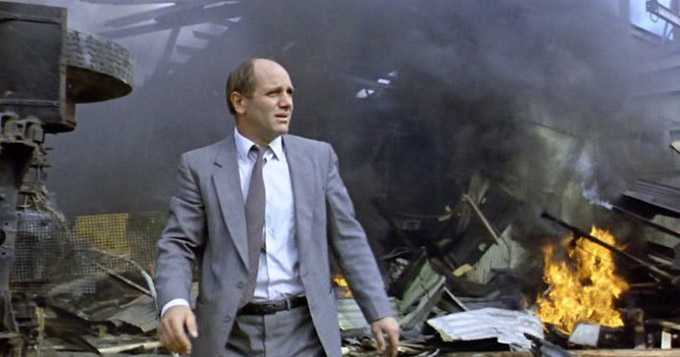
Since the earliest days of cinema the science fiction genre has flourished, capturing the imagination while commanding impressive box office receipts along the way. But not all great populist SF has been widely seen, become a large scale franchise, or been a big event film with A-list stars. Some get released and missed in the shuffle or get forgotten over the passage of years.
Great SF is often found in small scale indie film attire and art house dress or have been lost as the cult of admirers dwindled or got into something else. The following list guarantees an adventurous path of imagined futures, possible pasts, artificial intelligence, virtual reality, stinging satire and sometimes just some silly fun, but perhaps best of all is that many of these films are relatively obscure and are bound to be new discoveries for many of you. Enjoy!
10. The Brain That Wouldn’t Die (1962)
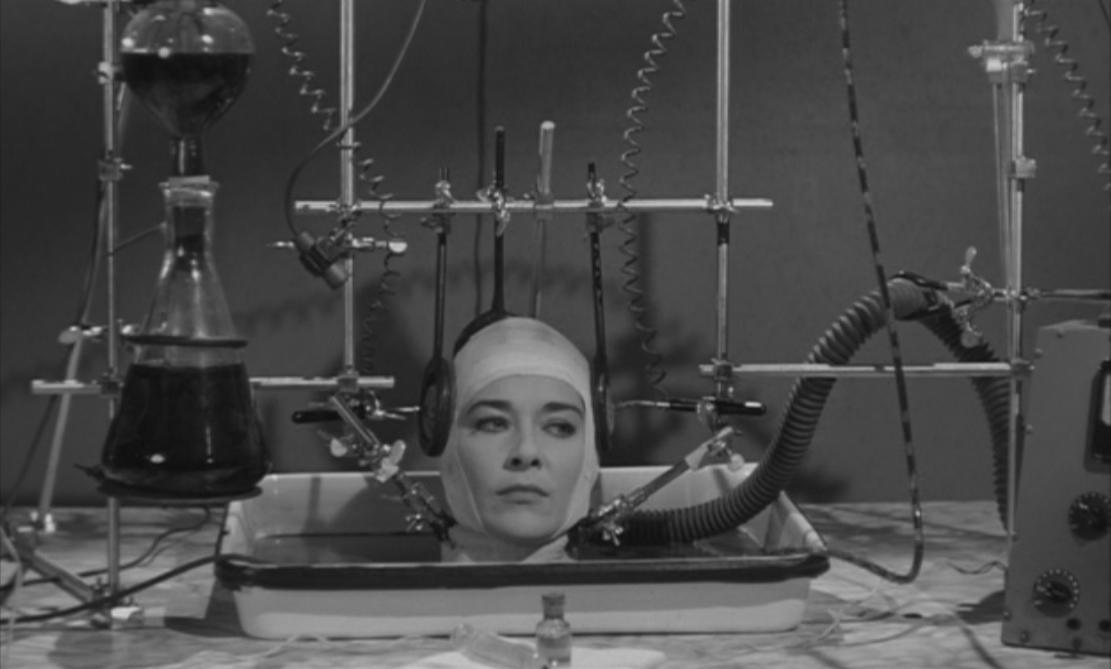
This bizarro mad doctor picture is certainly nobody’s definition of “great cinema” but it is an odd and entertaining bit of curios that was part of the strange wave of science-of-the-living-dead films that followed for years in the wake of the James Whale Frankenstein films for Universal.
Wonderfully awful, B-movie director Joseph Green smartly cast TV actor Jason Evers as Dr. Bill Cortner and a deliriously campy Virginia Leith as the doctor’s hapless (and soon to be headless) fiancée, Jan Compton. Head’s up, one night the couple are en route to the doctor’s lab when they’re in a nasty car accident that results in Jan’s decapitation.
Dr. Cortner, an expert in transplants, figures aww what the heck, I’ll perform the first head transplant and get famous or some such. Soon our overconfident scientist is busy with keeping Jan’s head alive in his lab as he maps out the groundbreaking yet highly unorthodox surgery. First, however, he needs a body, and that brings us to Eddie Carmel as “The Monster”.
Carmel, for all you trivia fans out there, who in real-life suffered from a pituitary gland tumor, is best remembered as the subject of Diane Arbus’s famous 1970 photograph “A Jewish Giant at Home with His Parents.”
9. Goke, Body Snatcher from Hell (1968)
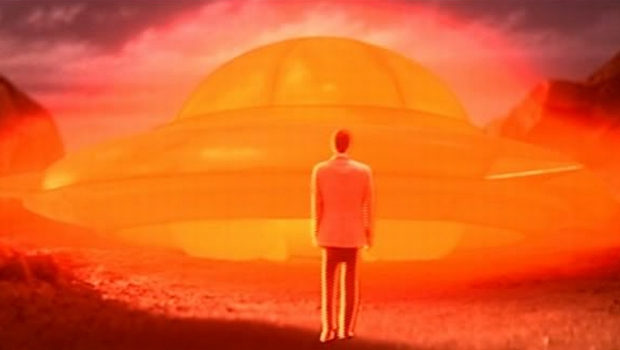
Viewed today it’s fair to say that Hajime Sato’s melodramatic alien-vampire B movie Goke, Body Snatcher from Hell is a pretty didactic picture. The film’s moralizing messages about human ignorance is heavy-handed to say the least, but it’s also fairly fascinating that this Japanese genre mashup is also a startlingly effective anti-Vietnam War fable.
The story, what little there is of it, concerns the survivors of a plane crash on an uncharted deserted island, who now have to contend with a bizarre blob-like alien that turns them into bloodthirsty vampiric predators. It’s all rather silly but is still a rather fascinating time capsule of late 1960s sci-fi horror and paranoia.
8. Island of Lost Souls (1932)

With an astonishingly great cast that includes Charles Laughton, Leila Hyams, Béla Lugosi, and Richard Arlen, this pre-Code SF horror spectacle is also highly notable for being the first and arguably the greatest screen adaptation of H. G. Wells’s classic 1896 novel “The Island of Dr. Moreau.”
This oft told tale concerns a shipwrecked lad, one Edward Parker (Arlen), who is adrift in the South Seas whereupon he’s rescued by an ocean freighter delivering animals to a creepy island owned by the mysterious Dr. Moreau (Laughton). As the story lurches forward we discover along with Parker that the not-so-good doctor deals in animal experiments and human torture in what a fellow wayward traveller named Lota (Kathleen Burke) refers to as “the House of Pain.”
Owing to still-shocking scenes of animal vivisection, Island of Lost Souls was banned in the UK for a quarter-century, and while that aspect of the film is horrific, there are redemptive aspects of the film.
Not only is Laughton’s performance chillingly theatrical (his creepy line delivery of “Do you know what it means to feel like God?” is another sequence that rattled censors back in the day), it’s Lugosi’s memorable utterance of “Are we not men?” that gave new wave legends Devo not only the title of their debut album (1978’s “Q: Are We Not Men? A: We Are Devo!”) but also lyrical inspiration for their celebrated B-side single “Jocko Homo.”
7. Frankenhooker (1990)
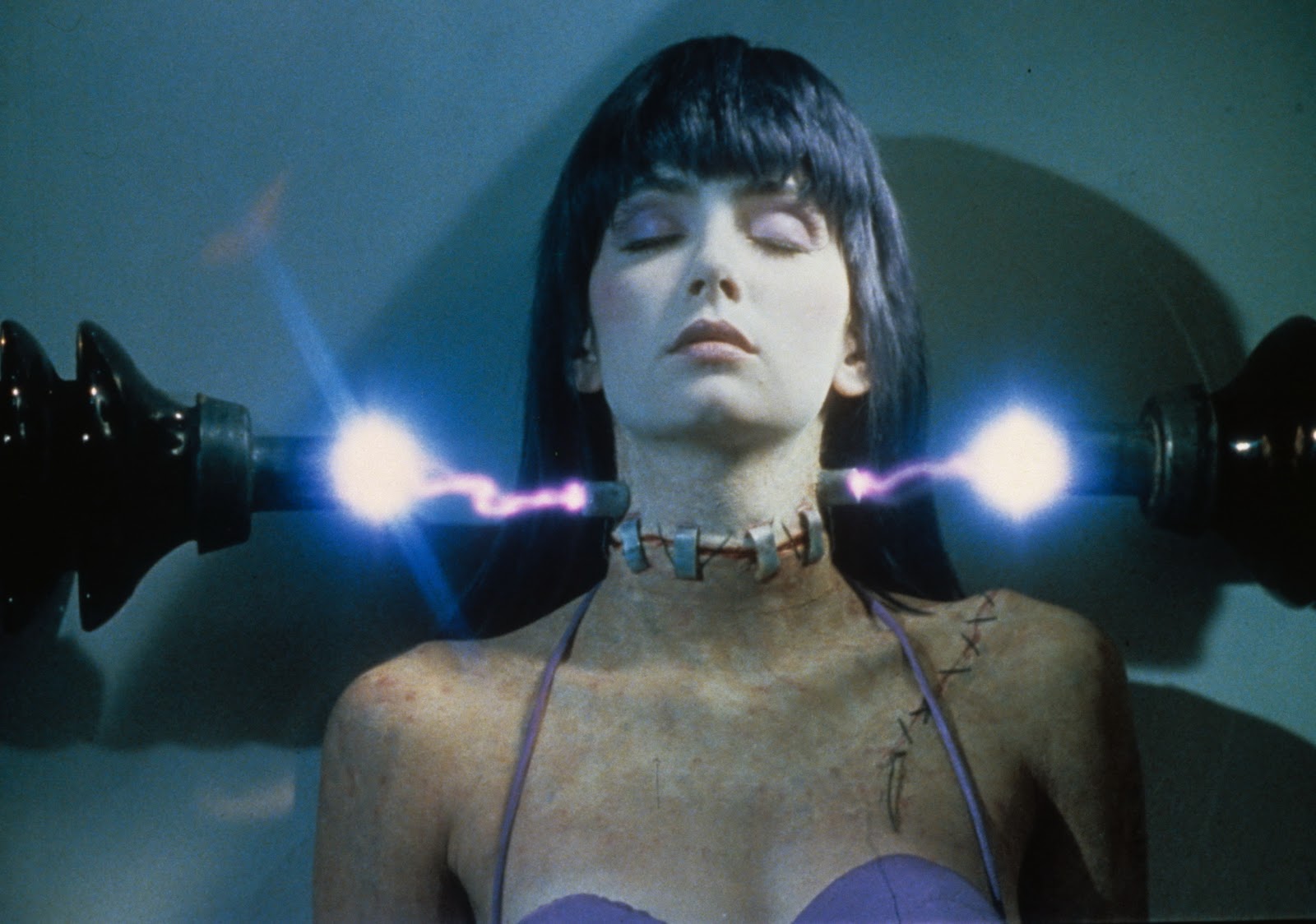
Suitably trashy, B-movie maven Frank Henelotter’s comical update of the Mary Shelley classic is as transgressive as his Basket Case trilogy (1982, 1990, 1991) and Brain Damage (1988), joyfully revelling in the requisite sex, drugs, and rock’n’roll while maintaining an impressive level of cerebral sleaze the entire time.
Jeffrey Franken (James Lorinz) is a hapless medical school drop-out living in New Jersey where his fiancée Elizabeth Shelley (Patty Mullen, previously best known as a two-time Penthouse “Pet of the Month” model) is killed in a freak lawnmower accident during a cookout party. In order to revive Elizabeth, Jeffrey, going more than a tad loco in his mad scientist scrubs, opts to use body parts from New York City prostitutes to help give his future bride a “leg up” in the world and you can guess where things go from there.
Henenlotter, a New York-based filmmaker, somehow via his personable and enthusiastic love of all movies B, managed to get an enthusiastic endorsement from his pal Bill Murray who famously quipped, “If you see one movie this year, it should be Frankenhooker.” So take it from Peter Venkman, why would he lie?
6. Tetsuo II: Bodyhammer (1992)
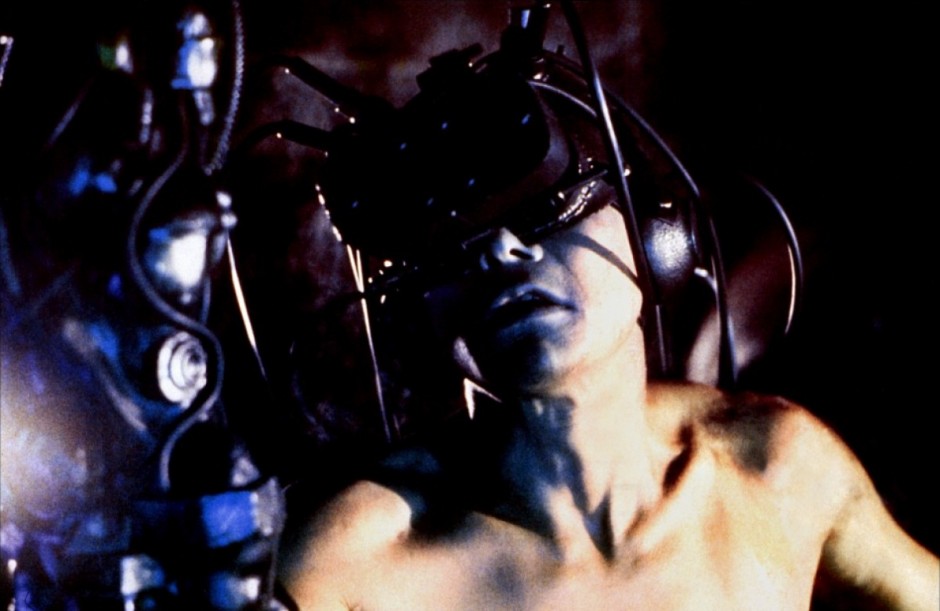
Japanese auteur Shinya Tsukamoto had a significantly bigger budget for his cyberpunk body-horror follow-up to Tetsuo: The Iron Man (1989) and the results are highly enjoyable for diehard genre fans. The log line spouts that cult-actor Tomorowo Taguchi, reprising his role from the first film, “is changing into a weapon… and he seems to like it!”
Both of Tsukamoto’s two Tetsuo films rank amongst the first industrial punk-rock horror movies ever to be made, and they offer up a sinister and scathing indictment of dehumanized Japanese masculinity from that late 1980s/early 1990s era. And Tsukamoto has an excellent understanding that science makes for a marvellous venue for the extraordinary as well as the grotesque.
Tetsuo II: Bodyhammer bludgeons the viewer over the head more than once, focussing our attention on the technologies that surround society and have overtaken our lives. Tsukamoto rather cynically suggests that these technologies are not only dehumanizing, but that they’re enabling, and evolving much faster than we are. How exciting and upsetting is that?